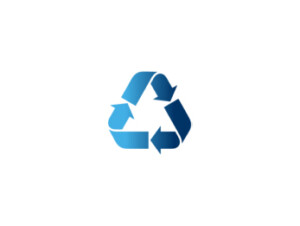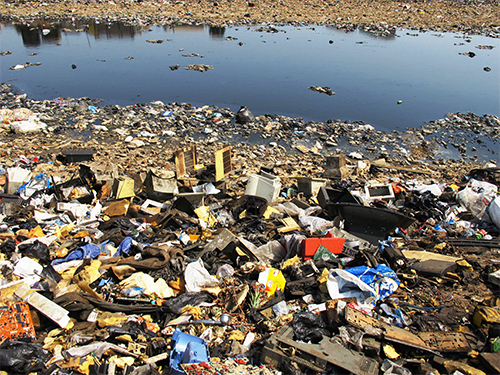
E-waste Tsunami: UN Warns of Growing Electronic Waste Crisis
The United Nations has issued a stark warning: the world is drowning…
We’ve managed to generate about 48.5 million tons of e-waste each year across the globe, according to the World Economic Forum. In an era where technology is rapidly advancing, the healthcare industry has embraced electronic devices and digital systems to enhance patient care, improve diagnostics, and streamline operations. However, with this digital transformation comes a pressing concern that often remains hidden in the shadows – electronic waste, or e-waste. E-waste in the healthcare industry presents a unique set of challenges that deserve attention. In this blog post, we will delve into the top five concerns about e-waste in the healthcare industry.
1. Environmental Impact: One of the concerns about e-waste in the healthcare industry is that E-waste contains hazardous materials such as lead, mercury, and cadmium, which can leach into the environment if not disposed of properly. This poses a significant risk to the ecosystem, water supplies, and soil quality. The healthcare industry, being technology-intensive, generates a substantial amount of e-waste, including discarded medical equipment, old computers, and outdated electronic devices. Without proper management, these items contribute to pollution and harm the delicate balance of nature.

2. Data Security: The healthcare sector is bound by stringent privacy regulations, such as the Health Insurance Portability and Accountability Act (HIPAA). Patient data stored in electronic devices and systems must be protected throughout its lifecycle, including disposal. Improper disposal of electronic devices can lead to data breaches, exposing patients’ sensitive information. Ensuring secure data destruction during e-waste disposal is crucial to maintaining patient trust and upholding legal obligations.
3. Health Risks: E-waste often ends up in developing countries where informal recycling processes are common due to lower labor and environmental standards. This can expose workers, often in impoverished conditions, to toxic substances as they dismantle and process electronic devices without proper protective measures. These workers face health risks from exposure to chemicals and hazardous materials, leading to respiratory issues, skin problems, and other serious ailments.

4. Resource Depletion: Electronic devices contain valuable resources like gold, silver, and rare earth metals. When improperly disposed of, these resources go to waste. Recycling e-waste not only conserves these valuable materials but also reduces the need for mining, which is environmentally destructive. By adopting responsible e-waste recycling practices, the healthcare industry can contribute to resource conservation and lessen the demand for raw materials.
5. Regulatory Compliance: The healthcare industry is subject to various regulations and standards to ensure patient safety and ethical practices. Similarly, there are regulations in place for the proper disposal of e-waste. Failure to comply with these regulations can result in fines, legal consequences, and damage to a healthcare facility’s reputation. Proper e-waste management, which includes documentation of disposal processes, is essential to maintaining regulatory compliance.
Addressing these concerns requires a multi-faceted approach that involves collaboration between healthcare institutions, technology manufacturers, government agencies, and the public.
At UPCYCLE, we understand that medical facilities, including hospitals and private practices, have unique needs when it comes to electronic waste recycling. That’s why we offer comprehensive solutions that are tailored to meet HIPAA compliance regulations, ensuring that your sensitive data remains secure during the disposal process. The healthcare industry’s reliance on electronic devices and digital systems brings with it a responsibility to manage e-waste effectively.
To learn more about Upcycle and IT Asset Disposition, click here.
Electronic Waste Recycling
At UPCYCLE USA, we make it easy for organizations to do the RIGHT thing with their End of Life Electronic (EOL) IT Equipment. Honest, reliable & secure electronic waste recycling services.